An Interview with Jason Marsh and Godsticks
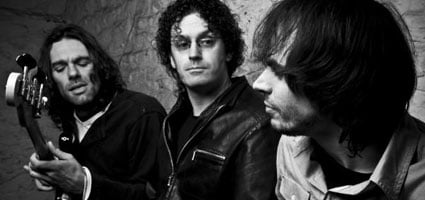 Godsticks’ Hartke-endorsed bassist Jason Marsh took some time to answer a few of our questions and give us some insight into his tone, practice and musical influences.
Godsticks’ Hartke-endorsed bassist Jason Marsh took some time to answer a few of our questions and give us some insight into his tone, practice and musical influences.
Godsticks is a progressive-rock band from South Wales, UK, featuring Darran Charles (guitar, vocal, piano), Marsh (bass) and Steve Roberts (drums). We interviewed Jason and the band together to get a full take on their views of the artistic development process and the prog-rock scene.
Q: You have a very agile playing style, who are your biggest influences? How have they helped shape your sound?
A: Thanks very much! There are a few players that had a huge impact on me when I first started learning bass: Jack Bruce, Billy Sheehan, Jaco Pastorius and Jeff Berlin.
There are other great players such as Victor Bailey, John Entwistle, Geezer Butler, Burke Shelley, Glenn Hughes.I also think Percy Jones has to be one of the greatest fretless players ever! Many players have influenced me over the years.Other than bass players, John Coltrane had a huge impact on me and although I’m not a Jazz musician, there is something about Coltrane and his exploration in music that is attractive and inspirational to me. I try to shape my sound by applying what I’ve heard from my influences and other players I’ve met. I think it’s good to draw from different sources and use them in your own way.
Q: What gear do you use with Godsticks, have you always used your current setup?
A: I have two basses, a Fender Jazz fretless and a Fender Precision fretted. My bass rig is very simple, it’s a Hartke LH-500 amp and a VX 8X10 cab. I’ve also had the pleasure of a Hartke HA3500, HA4000 and the Hartke XL and TP cabinets. In the past I’ve used various set ups including Pearce,Peavey,Marshall and Trace Elliot amps.
Q: What goes in to making your tone?
A: Both my Fenders have passive pick ups and if I upgrade them, it’s Dimarzio. They give a mid range punch which I particularly like when using my Jazz. The Jazz has also been defretted and has a super glue finish on the fretboard. The other modification is a Hipshot de-tuner for low D. I’ve not yet upgraded my Precision. I’m really pleased with the Hartke rig I’m using at the moment, very little fuss with Eq’s and as always with Hartke, it delivers a huge sound! Larry Hartke has been very helpful and supportive and I’m Pleased to be part of the Hartke Artist Programme. Strings play a big part in my tone, on my fretted bass they have to be big, fresh, steel roundwound and bright sounding. On my fretless I don’t mind so much if they’ve worn in a little and tend to go for Nickel roundwound. Both basses have Bass Centre Elites 45-105.
Q: Can you tell us how you practice? Do you have specific techniques or riffs that you swear by, or certain rituals that have helped you improve?
A: I play bass daily but I don’t have a strict practice regime. I’m not a very disciplined player either and consequently find it a challenge to work with players like Darran and Steve but it’s something that I welcome, it forces me to think and pushes me as a player. I don’t swear by any of my techniques, particularly in Godsticks where material can often taken various turns. As a band we’re open to developing ideas and in turn this encourages me to look at other sources to apply to bass.
Q: What are you currently listening to?
A: I haven’t bought any albums in a while, the last thing I rushed out to buy was by The Bad Plus. I’m probably a little out of touch with what’s going on in the world of bass and other music at the moment but what I do look for are players who have something different to say, Bryan Beller is a joy to watch and listen to, he’s a great musician. There’s always time for a large dose of Percy Jones, Scott Mcgill and Freakzoid are amazing. I’ve also been inspired by Lorenzo Feliciati.
Questions including other band members:
Q: Given that you are in the scene, how do you define “Prog rock?” What is your view of the “prog” community as it stands today?
Jason: One of the biggest highlights for us since releasing the EP has been discovering what a huge and open-minded prog community there is out there. We never expected to sell many EP’s but we’ve been overwhelmed with sales and even managed to secure distribution in Europe. What has been particularly pleasing is the enthusiasm shown by prog fans to support the music they love. They’re constantly searching for new artists and the support we’ve been given so far has been fantastic.
Darran: Defining prog is a quite subjective and sometimes controversial. I personally define it as based music featuring harmonic and rhythmic complexity, strong musicianship, unpredictability, and use of stylistic elements from other genres. Or more simply: something that you find difficult to pigeonhole!
Q: Are there any current projects you’re working on, such as new songs, albums or a new tour that listeners can look forward to?
Jason: Well, we’re hoping to out on tour from at August onwards and we’re playing the ‘Summers End’ festival in October. We’ve spent the last 4 months rehearsing, and have expanded the line-up in order to perform the music as accurately as possible. We’ve recruited a great guitarist called Richard Davies and an equally great pianist in Richard Gabriel.
Darran: We’re constantly working on new material. So far we’ve written about half of the album, which will be equally as eclectic as the EP. We’re really looking forward to get the new material out there and we’re looking to release an album by the early part of 2010.
Q: What’s it like in the studio with Godsticks? Do you have certain habits you always stand by in the recording process?
Darran: We almost never experiment in studio. Every song and every part is written in its entirety before we even contemplate booking studio time. We have a very clear idea of the instrument sounds we want also, and the way we want it mixed.
Jason: We had a very difficult time finding a producer who knew what we were trying to do. Even with just the one EP under our belt we managed to go through 3 producers before finding the right one! Joe Gibb has been the best producer we’ve ever worked with though: a real perfectionist whose attention to detail matches our own. He’ll definitely be producing the album.
Q: What direction do you see Godsticks going (professionally, musically etc)?
Darran: Professionally, it’s not up to us, unfortunately. We did spend some time trying to secure a record deal but we were generally met with the same response – ‘you’re too difficult to pigeonhole and consequently hard to market’. Fusion is a very dirty word and Jazz even filthier, and a few record companies seem to think that those elements would confuse the general prog-rock fan. As a prog-fan I couldn’t agree less; just listen to ‘Relayer’ by Yes, that positively stinks of jazz in places but its quite rightly considered prog. From a business point of view I can see the importance of labeling, but as a listener it makes absolutely no difference to me – music is music.
Jason: We’re not going to complain though: after all, that’s the nature of the business and you’d have to be pretty naïve to think that it’s going to change. We’ve been told that we’d probably get a deal if we ‘conformed’ a little, but to be honest we can’t be anything other than ourselves. Given the sales of the EP I think we stand a pretty good chance of surviving as independent artist though, and we’ve also been offered distribution on the album when it’s finished. If the right deal came along though, we’d certainly consider taking it.
Darran: Musically, anything goes! If left to our own devices I would tend to write very pop-orientated songs; Jason more fusion tinged; and Steve’s just a full on progger! The combination of those preferences makes for our own style, I think.
Q: We’d be really interested to know about the band’s background. How long has Godsticks been together?
Jason: We’ve been together for nearly 4 years. We started off as a cover band playing complex instrumental music but then started to write our own music. We played quite a few gigs doing those covers but to say they were met with indifference would be an understatement! We didn’t mind though; it was a very good grounding for us as a band.
Q: To follow up with that, can you tell us a bit about the song writing process? Are all the songs a collaborative effort or is there a different process in your creative production?
Darran: Mostly, it’s a collaborative process. It takes around 6 months on average for us to write one song, although we usually have a few on the go. It’s an extremely time-consuming process fraught with stress and many arguments! The challenge for us has always been to make a song interesting from beginning to end by a) avoiding bleeding a good idea for all its worth, and b) too much repetition. We wanted to give the listener lots of different reasons to return to a song again and again, which artists like Frank Zappa and Steely Dan did for me.
Jason: An EP review recently commented that we manage to do in 5 minutes what other bands take three times as long to do! I think that’s more down to the fact that we’re easily bored, and as Darran mentioned we’re always conscious not to milk a good idea.
Darran: Another one of the reasons writing takes so long is that we often go through many different choruses and versus before we hit on an idea that we’ll all satisfied with. We’re often scrap entire versus or choruses a month after writing them because we don’t like them any more! It’s a real pain in the arse but the end result is always worth it – if a song is still enjoyable after 6 months then that says a lot for the song.
Be sure to check out Godsticks on MySpace.
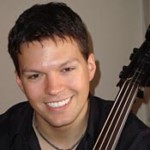
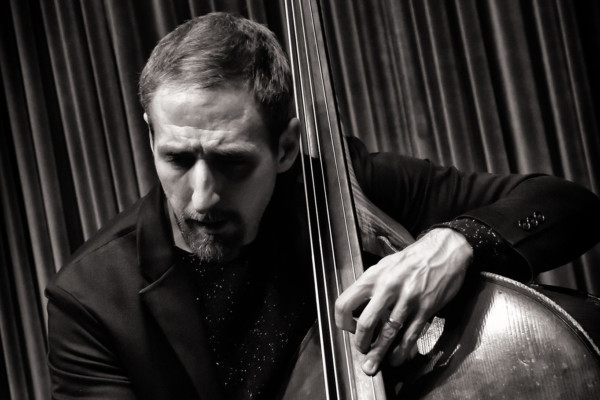
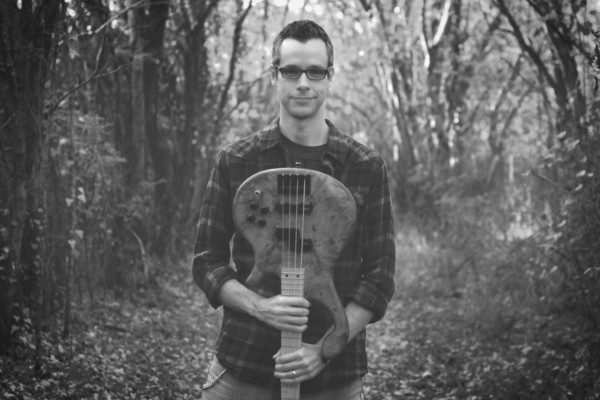
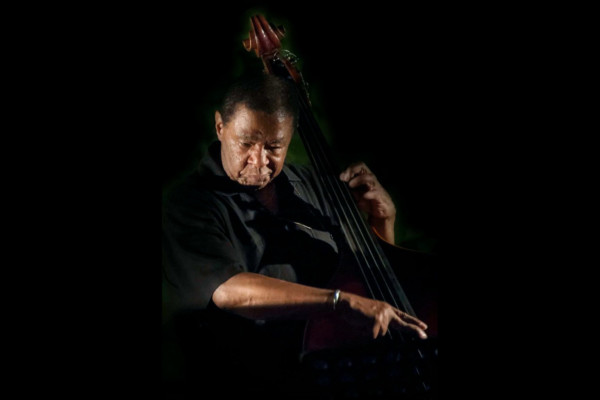
[…] CLICK HERE TO READ ORIGINAL ARTICLE […]